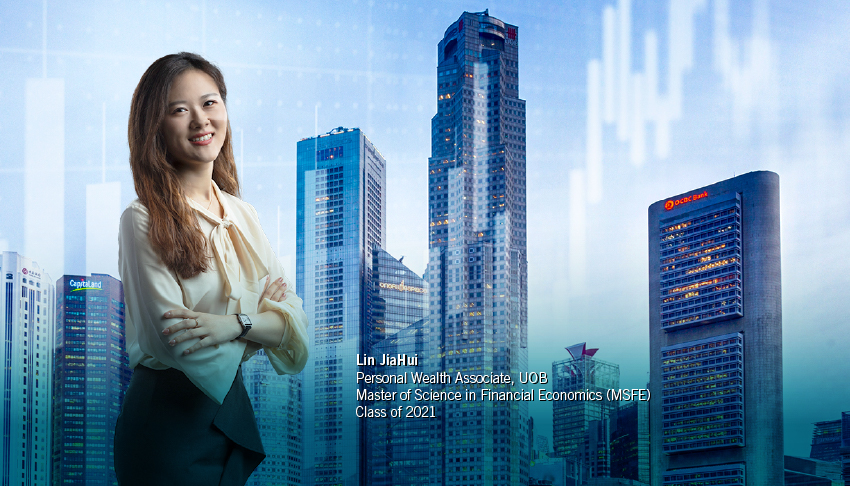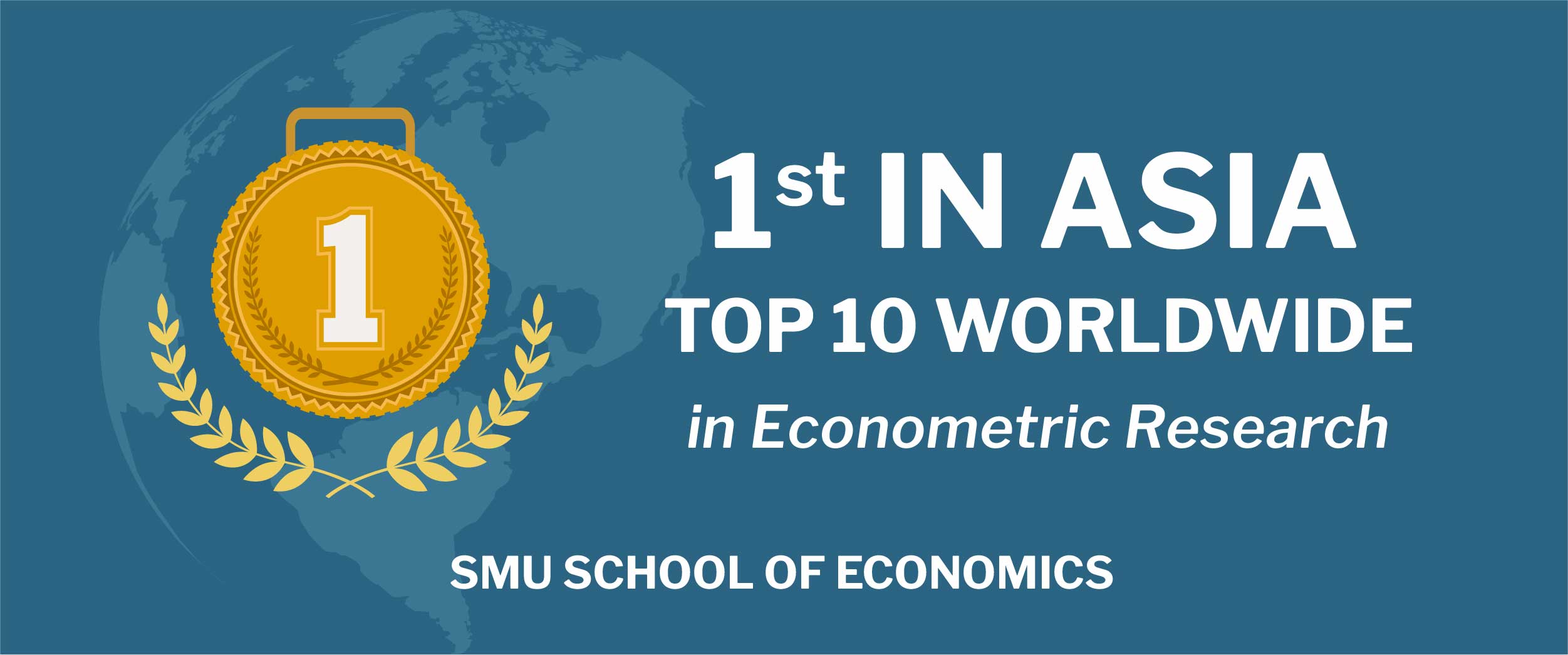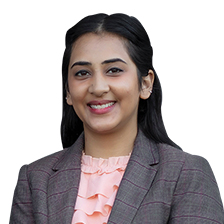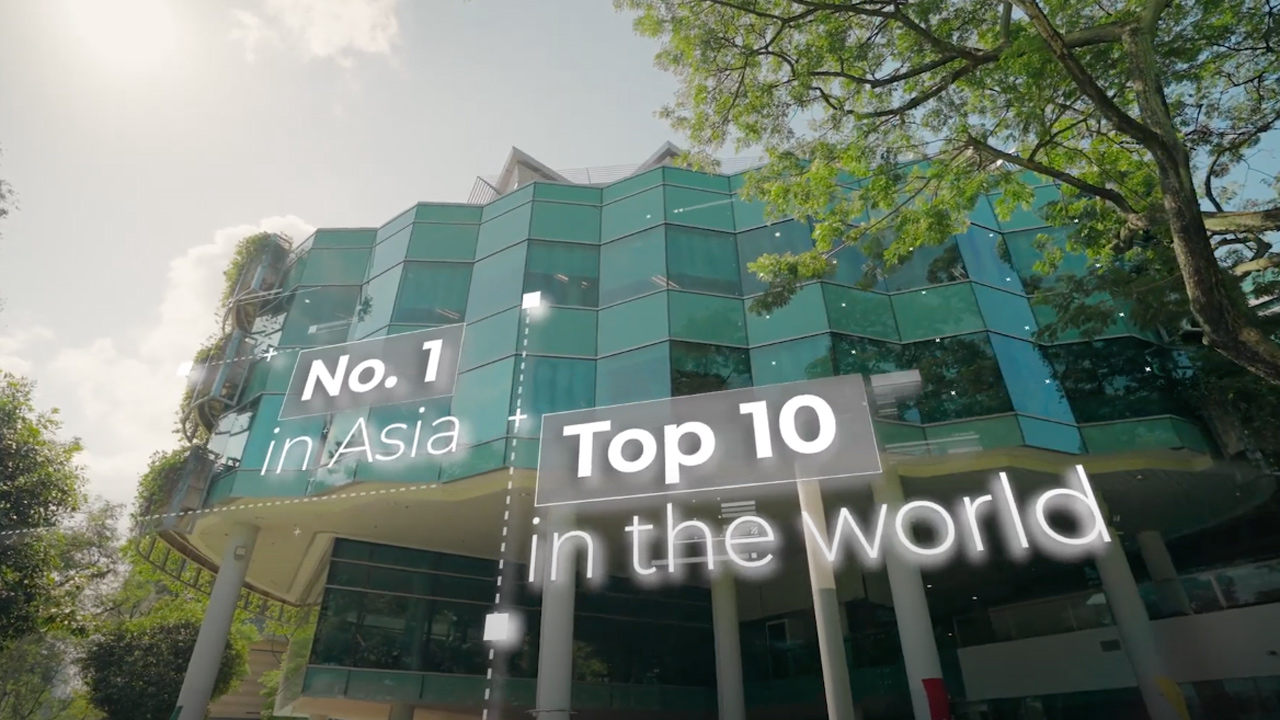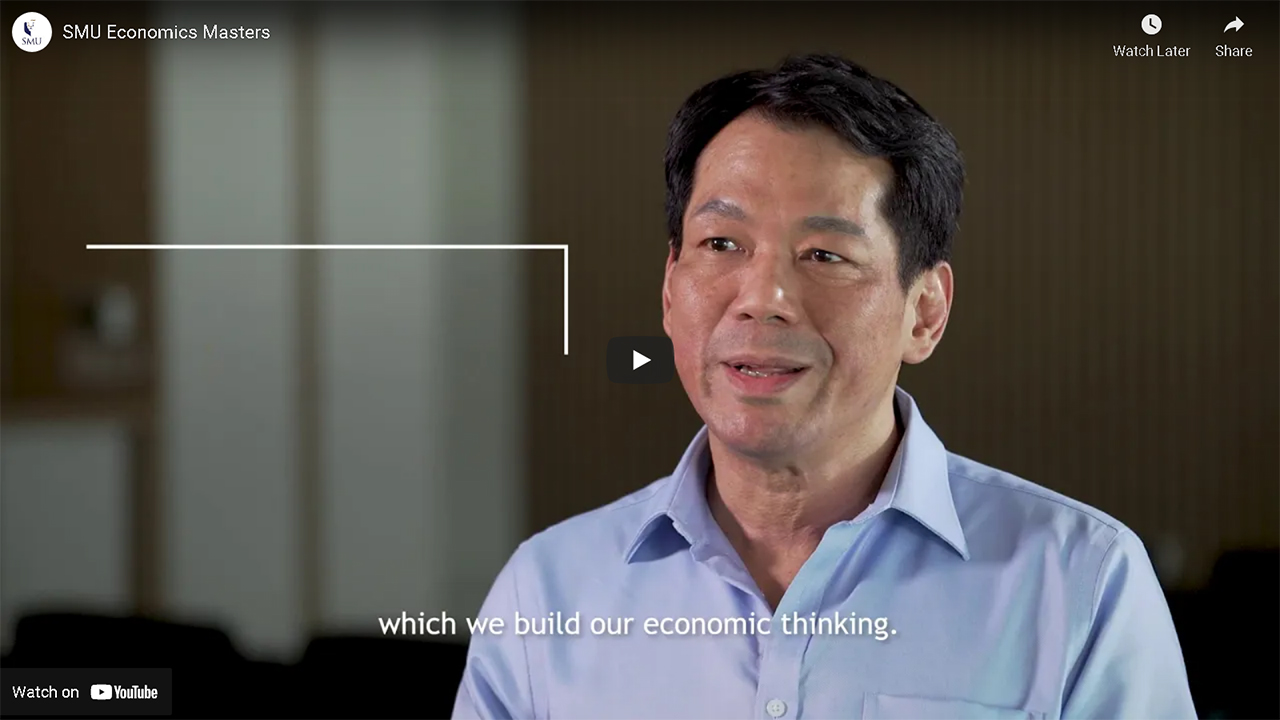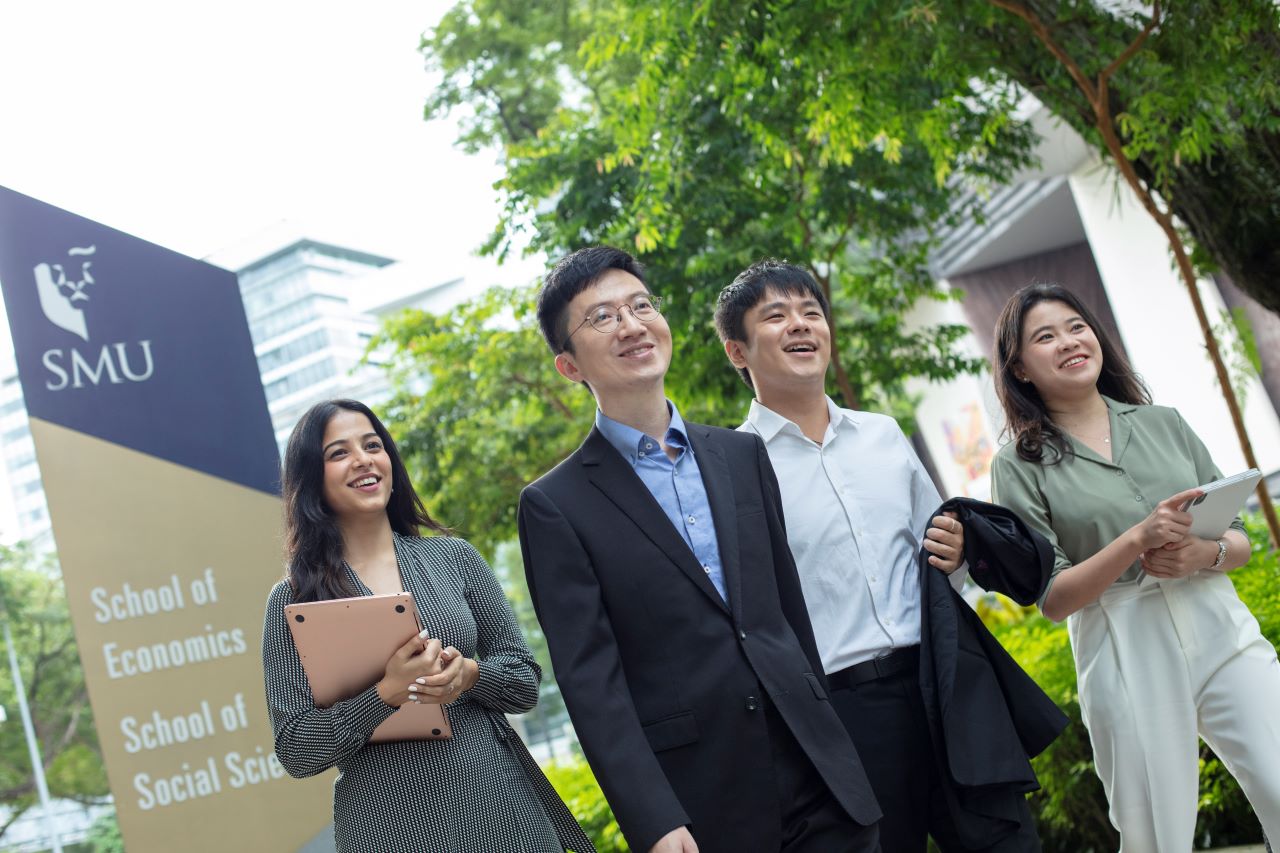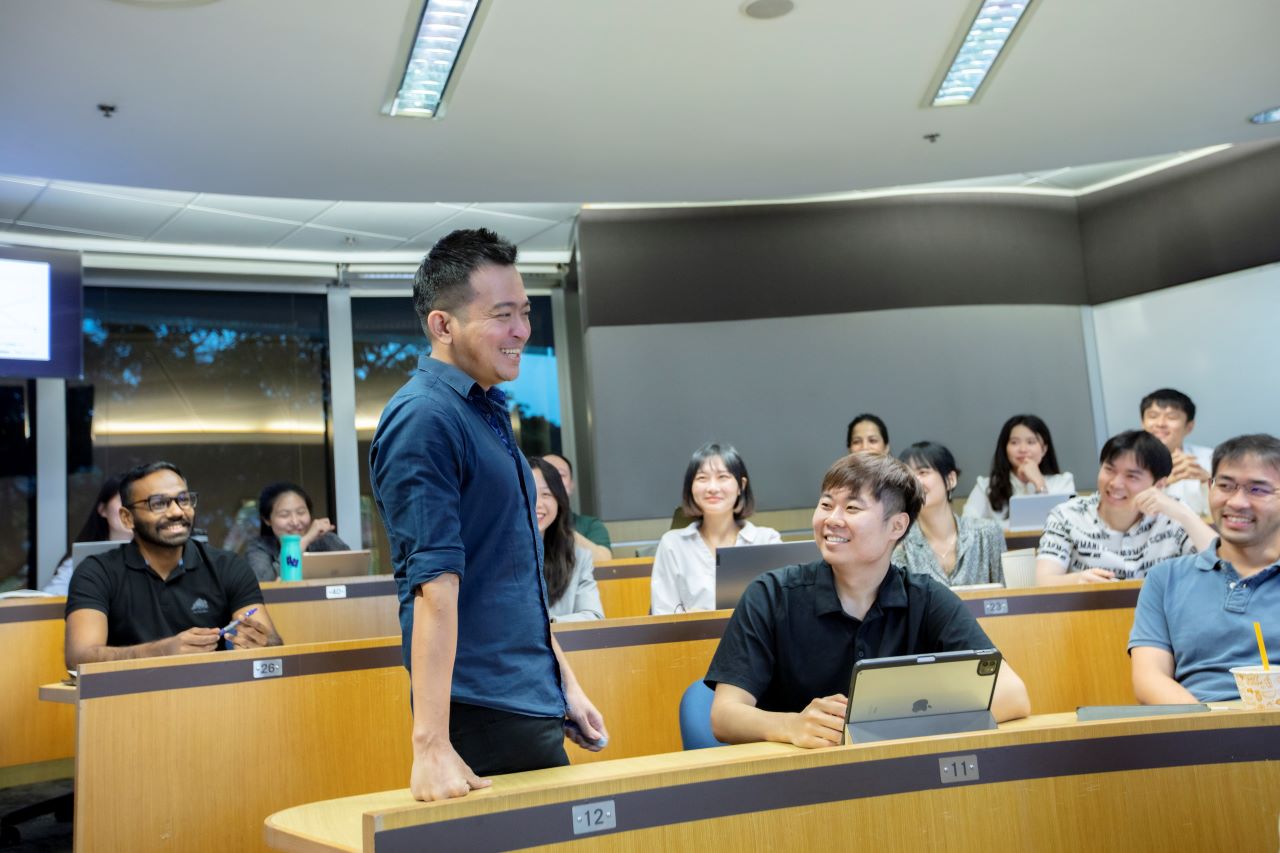AUGUST / JANUARY INTAKE
18 Months Full-Time (with flexibility to complete in 12 months)
30 Months Part-Time (with flexibility to complete in 24 months)TUITION FEE
S$54,500 TUITION FEE (INCLUSIVE OF GST)
APPLICATION CLOSES
August Intake: 30 June 2026
January Intake: 30 November 2026
Applications Now Open for August 2026 Intake!
Click here to sign up now for SMU Economics Masters online information session on 26 February and learn more about applications for August 2026 intake!
For 1-1 consultation, please contact our admission consultant here.
About Master of Science in Financial Economics
Key Programme Updates – Effective August 2026 Intake
We are introducing important changes to the MSFE programme starting from the August 2026 intake to offer greater flexibility and inclusiveness:
- Expanded Admissions & Pathways
The August intake will now be open to students from diverse academic backgrounds. Foundation courses will be provided to bridge any knowledge gaps. Students with strong quantitative backgrounds may be exempted from these courses and complete the programme in 12 months — the accelerated pathway, available in both August and January intakes. - Updated Duration & Tuition
For students taking foundation courses, the August intake will span 1.5 years, with tuition fees adjusted accordingly. Accelerated students will continue to follow the 12-month track with corresponding tuition. - Curriculum Enhancement
The foundation component will be reduced by 1 CU, and the open component increased by 1, allowing for more flexibility and personalization while maintaining a strong academic foundation.
The Master of Science in Financial Economics programme combines two central strengths of SMU – econometrics and finance – in a programme that meets the loud industry demand for professionals with the skills for deep analysis of increasingly complex financial problems in a new era of dynamic policy and regulation.
Learn how a vast array of novel modelling, forecasting and surveillance methods has been developed in financial theory and econometrics to address the industry challenges. This programme provides a transformative learning experience to students who seek to pursue a career in the finance industry or research.
Why pursue the SMU MSFE?
-
1
MULTIDISCIPLINARY
Gain from the multidisciplinary delivery of economics, econometrics and financial theory.
-
2
RIGOROUS CURRICULUM
Learn advanced tools of economic theory, financial econometrics and statistical computation.
-
3
FUTURE PROOF
Be equipped with the fundamentals to anticipate and handle future financial crises.
-
4
WORLD-CLASS FACULTY
Learn from the top-notch econometricians, qualified and experienced faculty members and industry practitioners.
Class Profile
-
 Typical Age Range
Typical Age Range25 yrs
-
 Gender
Gender49(M) : 51(F)

Testimonials
Industries MSFE Graduates Work In
-
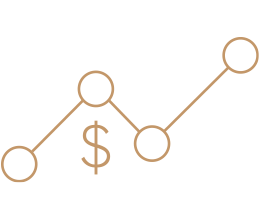 FINANCIAL SERVICES
FINANCIAL SERVICES50%
-
 GOVERNMENT
GOVERNMENT14%
-
 TECHNOLOGY
TECHNOLOGY9%
-
 EDUCATION
EDUCATION9%
-
 CONSULTING
CONSULTING5%
-
 REAL ESTATE
REAL ESTATE5%
-
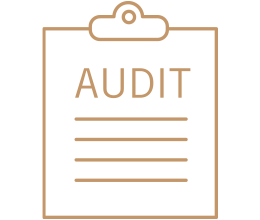 AUDIT / ACCOUNTING
AUDIT / ACCOUNTING4%
-
 MANUFACTURING
MANUFACTURING4%

Programme Details
Programme Calendar
- AY2026-2027: Click here to download.
- AY2025-2026: Click here to download
- AY2024-2025: Click here to download
Programme Structure
The Master of Science in Financial Economics (MSFE) programme is a rigorous multi-disciplinary programme that gives you in-depth understanding of financial markets and their interaction with the macroeconomy backed by strong econometrics training for analysing economic and financial data.
The programme offers two intakes annually (January and August), catering to both full-time and part-time students. We welcome applicants from all disciplines, including those who may not have prior exposure to economic theory or quantitative techniques. Students who demonstrate substantial knowledge in economics and quantitative techniques may be granted exemptions from foundational courses.
(Full-time and Part-time)
Full-time January Intake
Part-time January Intake
Term
Term
Term
Term
Term
Term
Term
Term
Term
Term
Term
Term
Term
Term
(Full-time and Part-time)
Full-time August Intake
Part-time August Intake
- Students may graduate as soon as they have met all requirements, even if this is earlier than the expected completion dates indicated above. The maximum candidature is 2.5 years for full-time students and 4 years for part-time students.
- Part-time students typically take 1–3 CUs per regular term (Aug, Jan, Apr), whereas full-time students take 2–5 CUs.
Programme Information
Programme Curriculum
The MSFE is a 15 course unit (CU) programme, available for full-time study with internship opportunities.
Each course unit (CU) comprises ten 3-hour sessions. Graduation requires a Cumulative Grade Point Average (CGPA) of at least 2.50 on a 4.00 scale.
The curriculum structure will be updated as follows effective August 2026.
Foundation (4CUs)*
The Foundation component provides essential training in economic theory and advanced quantitative methods, preparing students for the rigorous demands of the MSFE core and elective courses.
| MSFE Programme Foundation |
|
Choose four: Principles of Economics 1, Principles of Economics 2, Mathematics for Economics, Further Mathematics for Economics |
*The Foundation component will be streamlined to 3CU effective August 2026, comprising: Principles of Economics, Statistical Inference, Mathematics for Economics.
Core (6CUs)
The MSFE Core equips students with rigorous knowledge in microeconomics, macroeconomics, econometrics and finance for effective financial decision-making and strategic financial management in competitive financial markets.
| MSFE Programme Core |
|
Corporate Finance |
Elective (3CUs)
Students have the flexibility to choose 3 elective courses to enhance their knowledge in the preferred economics/finance domains.
| MSFE Programme Elective |
|
Alternative Investments and Distribution |
Note: Not all courses are offered every year. Course titles and content are subject to change, and new courses may be added from time to time.
Open (1CU)*
To enhance the academic experience and holistic development of the postgraduate students, flexibility is given to students to take one course from MSFE/MSE electives; or pre-approved electives from other SMU Masters programmes; or a minimum10-week internship/capstone project.
*The Open component will expand to 2CU effective August 2026.
Postgraduate Professional Development course (1CU)
Students are required to complete a series of full-day skills-based, developmental workshops or experiential components that are facilitated by SMU faculty and experienced trainers from various industries. This is to enhance the students’ professional standing, enable them to gain new skills sets beyond the curriculum, and expand their network with fellow students across SMU Masters programmes.
FOUNDATION MODULES
This course is divided into two main branches namely microeconomics and macroeconomics. While macroeconomics is concerned with the economy as a whole, microeconomics examines the individual parts of the economy and focuses on how individuals and firms make decisions and how these decisions interact. This course is designed to introduce learners to the fundamentals of economics by exposing them to the principal theories and models used by economists. It demonstrates how economics can be used by individuals and businesses alike to assess problems and develop solutions. It also examines the wider macroeconomic environment and the principles underlying monetary, fiscal policy and international trade.
This course introduces students to the rigorous mathematical foundations of economics. It offers students the necessary tools upon which modern economic analysis and modeling is based. This course emphasizes training in mathematics used in economics through the many economic applications in which mathematical tools are needed.
The course covers four main topics. The first part covers the basics, such as functions and set theory. The second part teaches matrix algebra in relations to equilibrium analysis, while the third part introduces the concept of comparative statics and the tools needed, derivatives. The fourth topic again uses derivatives to do a rigorous exposition on the most important skill in economics: optimization. In each part, there will be many economic applications to let students familiarize with the mathematical concepts in an economic context and learn their real-world usefulness.
This course continues from Principles of Economics 1 to cover government interventions in markets, consumer demands, firms and market structures in the first part.
The second part of the course introduces students to the basic micro-foundations of macroeconomics, namely the consumption-leisure and consumption-saving trade-offs. The third part of the course covers the foundational theories of macroeconomics: the classical and Keynesian theories.
This course trains students in the rigorous mathematical foundations of economics. It offers students the necessary tools upon which modern economic analysis and modeling is based. This course emphasizes training in mathematics used in economics through the many economic applications in which mathematical tools are needed.
The course continues from ECON6018 by first covering the important techniques of constrained optimization. The second part extends the topics of matrix algebra to include further topics of linear algebra. The third part deals with integral analysis and probability theory. In each part, there will be many economic applications to let students familiarize with the mathematical concepts in an economic context and learn their real-world usefulness.
This course introduces students to the rigorous mathematical foundations of economics. It offers students the necessary tools upon which modern economic analysis and modeling is based. This course emphasizes training in mathematics used in economics through the many economic applications in which mathematical tools are needed.
The course covers five main topics. The first part covers matrix algebra in relations to equilibrium analysis, while the second part introduces the concept of comparative statics and the tools needed, derivatives. The third topic again uses derivatives to do a rigorous exposition on the most important skill in economics: optimization. The fourth topic revisits matrices in the wider context of linear algebra, covering the important concepts of eigenvalues, eigenvectors and quadratic forms. The fifth part gives an introduction into the definition and meaning of integrals, which is important for understanding economic dynamics. In each part, there will be many economic applications to let students familiarize with the mathematical concepts in an economic context and learn their real-world usefulness.
This course is divided into two main branches namely microeconomics and macroeconomics. While macroeconomics is concerned with the economy as a whole, microeconomics examines the individual parts of the economy and focuses on how individuals and firms make decisions and how these decisions interact. This course is designed to introduce learners to the fundamentals of economics by exposing them to the principal theories and models used by economists. It demonstrates how economics can be used by individuals and businesses alike to assess problems and develop solutions. It also examines the wider macroeconomic environment and the principles underlying monetary, fiscal policy and international trade.
Statistics abounds in our everyday lives, from economics to physics, accountancy to medicine, business to technology, geography to law, social science to politics, a veritable all-embracing giant. No discipline does well that disavows it or belittles it. Though many occupations may not require specialized statistics degrees, they demand at least a working application of statistics, and able competency with data crunching, statistical software and results management.
This course focuses heavily on running statistical analyses and applications through Microsoft Excel, with interpretation of results for sound decision making in practical cases, covering the basics to higher-level statistics. By the end of this course, students will:
- know the principles and elements of basic statistics;
- understand the need for data collection and summarize data sets into meaningful information;
- match and execute correct statistical procedures to different data types and write sound interpretations for use in practical decision-making
CORE COURSES
The main purpose of this course is to provide students with the necessary econometrics tools and techniques used to analyse data sets in economics, business and finance. The focus is on understanding the methods involved, using statistical software to provide the results and then interpreting and commenting on these results. The course introduces linear and multiple regression analysis, which remains the most commonly used statistical technique in econometrics. Other topics include model specification diagnostics, nonlinear regressions, multicollinearity, heteroskedastictiy, simultaneous equations, instrumental variable estimation, binary dependent variable, and OLS in matrix form.
The course covers the foundations of Microeconomics, which constitute the fundamentals of economic analysis. The topics covered are: consumer choice (individual and aggregate), producer theory, decision making under uncertainty and principles of strategic interaction (game theory). In particular, the course will provide an introduction to normal form games, extensive form games of perfect and imperfect information and to the solution concepts that are developed for these. The last part of the course will introduce the principles of general equilibrium theory and study the fundamental theorems of welfare economics.
The course is structured in a formal manner, typical for its level, and makes use of language and tools from Mathematics. Proofs of results will be provided when needed, so as to get the student acquainted with the rigorous thinking and systematic approach that is an integral part of economic analysis. Knowledge of the mathematical tools needed by an Economist is required. A nonexhaustive list is: Calculus (continuity, differentiation, integration), Constrained and Unconstrained optimization (Kuhn-Tucker conditions), Probability theory, Linear Algebra.
This course explores major macroeconomic topics using the general equilibrium frameworks with micro-foundations. We take a rigorous approach to address income, consumption, saving, investment, economic growth, business cycles and economic policy applications. The main objective of this course is to introduce you the workhorse models of modern macroeconomics and illustrate how they are used in conducting macroeconomic research as well as implementing government policies.
The course is rigorously structured and is conducted at a fast pace. You need to clarify any doubts at the earliest by contacting me, or through group discussions with your fellow classmates. Problem sets are an integral part of the course and it is imperative that you attempt all problems.
This course introduces the essentials of financial decision-making. The objective is to inculcate an understanding of the elements of strategic financial management and to build proficiency in their application to real world problems. Participants will be provided with a rigorous introduction to the foundations of business finance in competitive financial markets. The course is designed to equip managers and leaders with the basic tools that are necessary for managing a firm in a dynamic global financial environment. Emphasis will be placed on apply-ing these tools to arriving at optimal decision strategies that will maximize the value of the firm.
The application of econometric methods to the characterization of financial data, and to the estimation and testing of selected models of modern finance theory. Areas to be covered include: the statistical modelling and forecasting of financial time series, with application to share prices, exchange rates and interest rates; the specification, estimation and testing of asset pricing models including the capital asset pricing model and extensions; the modelling of volatility; practical application of volatility forecasting.
This course is aimed to help students to obtain an in-depth understanding of the major empirical finance issues, particularly in investments. This course would also cover the current theories of portfolio management and provide a conceptual framework for the evaluation of investment strategies. It aims to provide students with exposure to the process of investment management including identification of investment objectives and constraints, determining asset allocations, and measuring portfolio performance.
Topics include models of stock returns, multifactor asset pricing models, asset allocation, stock screening, predictability, performance evaluation, anomalies, and limits to arbitrage. It will also cover the fundamental concepts of investments, including risk and return, market efficiency, portfolio diversification, and risk management. Based on recent research articles and cases, students are required to learn the empirical facts, theories and the associated statistical tools to analyze financial data. The coverage will include applications and implementation.
SPECIALISATION ELECTIVES
This is an introductory course for continuous-time methods in economic and econometric applications. Topics covered include stochastic calculus, option pricing, stochastic control, microstructure theory, volatility estimation, forecast evaluation, and event study.
This course provides an overview of Machine Learning (ML) principals. The goal of the course is to teach you the basics of the ML theory and practice of ML algorithms. The course will build upon the knowledge and skills you gained in econometrics and statistics courses. Students will learn how to interpret, design, and execute empirical projects using software and skill building in critical thinking and problem solving will also be emphasized. We will additionally explain important issues and topics that recently happened in the ML literature.
Part A: This is a course on the mathematics of interest rates and bond management. Students will go through the basic theories of interest rates, including the computation of the future and present values of annuities. There will be an introduction to portfolio investment performance evaluation techniques, including internal rate of return, dollar-weighted return, time-weighted return, geometric mean rate of return, arithmetic mean rate of return and portfolio return. Estimation and theory of spot rate, forward rate and term structure will be discussed.
Part B: Financial derivatives have applications across many areas of finance, such as hedging, swaps, convertible claims, and corporate decision making. The course objective is to provide students with the necessary tools and techniques to determine the fair valuation of forward, futures, options and other derivative securities, and apply derivative securities in hedging risk exposures, such as commodity price risk, currency risk, interest rate risk, stock portfolio risk, and so forth. Furthermore, students will be given the opportunity to explore a comprehensive online financial markets simulation system (Stock-Trak) to obtain hands-on experience (of a fund manager :) in trading in the “real” market. For instance, students can trade futures and options on commodities such as gold, silver, corn, oil etc at the ‘market prices’ through Stock-Trak.
The aim of this course is to introduce students to alternative investment principles, products and the respective distribution capabilities. We will ground the discussions by laying out the view and practice of how new Alternative Investments reshape the institutional and private investment advice, now and into the future. Furthermore, we contextualize the product distribution capability through digital advisory platforms, and analyze it relative to traditional methods, considering their enhanced characteristics, principal advantages, and challenges to their further development.
The course is targeted at students with a basic understanding of investment management processes and alternative investments, interested in further understanding digital distribution frameworks and the emergence of robo-advisors as evolved means of customer engagement. The course is constructed in such a way that academic research and theoretical knowledge are supported by real life practice.
It provides the students with means to understand core alternative products and processes, important building blocks of related digital-advisory platforms, the purpose and needs for robo-advisors as innovative technologies. The students will be immersed in a real life investment exercise by allocating to suitable investments in the alternative space, practically defining and designing modules of the digital wealth advice eco-system.
Understanding an investment portfolio’s risk and performance characteristics is critical for sustainable top performance of investment portfolio. The problem is particularly challenging for investment portfolio that contains both public and private investments. This course looks to introduce course participants foundational skills (e.g. risk measurement, performance attribution, etc.) that provide insights to an investment portfolio. In addition to laying the theoretical grounding, the course also covers the practical aspects and implementation considerations.
Full-time students are required to complete a minimum 10-week internship during the April Term. If you are unable to take a credit-bearing internship, you may seek approval from your Academic Director to arrange an equivalent replacement (e.g., a Capstone Project or electives).
Students who have accumulated, or will have accumulated, two years of relevant work experience by their graduation date may be exempted from the internship requirement, subject to approval.
SMU MPhil & PhD in Economics
SMU School of Economics is internationally recognised as a leading centre for economic research. Our research programmes aim to attract the very best students and help them develop into first-rate researchers, educators, policy makers, or private sector analysts. To this end, the PhD and MPhil in Economics programmes are designed to meet the highest academic standards and enable students to work closely with our world-class faculty throughout their studies.
For more information about the SMU MPhil & PhD in Economics programmes, please click here.
Events

How to Apply
- Application Period
- General Instructions
- Supporting Documents
- Admission Requirements
- GMAT/GRE/SMU Admission Test
APPLICATION PERIOD
The application period for the respective admission pathway are as follows:
| INTAKE | APPLICATION DEADLINE |
|
August Intake |
1 October to 30 June |
|
January Intake |
1 June to 30 November |
How to Submit Your Application
- Complete the online application form.
- Upload your supporting documents via the application portal.
- Make a payment of S$100 (inclusive of GST) for the application fee.
- You will receive a confirmation email to acknowledge the successful submission of your online application. Both your referees will receive an auto-generated email to complete the online referee reports. You may wish to inform your referees to expect this.
- Shortlisted applicants with complete application records will be contacted for admission interview.
If you would like to submit additional documents (e.g., updated academic transcript, new test results, etc.) after the submission of your online application, you may send them to us separately via email: msfe@smu.edu.sg.
If you would like to submit additional documents (e.g., latest academic transcript, new test results, etc.) after the submission of your online application, you may send them to us separately via email: msfe@smu.edu.sg.
Applicant Self Service
After submitting your application, you may use the Applicant Self Service portal to perform self service functions when necessary (e.g.: make payment for SMU Admission Test, check application status, update referee record and monitor referee report submission status). Please read the Self Service Guide for further information.
The application portal will prompt you to upload your application documents online. Preferably, you can upload all your documents in PDF format. Please ensure that scanned documents are clear and legible. Failure to do so will result in delays to the processing of your application.
- Personal Identification Document
- NRIC Identity Card (for Singapore Citizens)
- Passport, Blue NRIC Identity Card and Re-entry Permit (for Singapore Permanent Residents)
- Passport and Employment Pass or Dependent Pass (for non-Singaporeans applying for part-time programme)
- Passport (for non-Singapore Citizens)
- Degree Scroll and Official Transcript from each University attended (with English translation if applicable)
- GMAT / GRE / SMU Admission Test Score Report
- IELTS / TOEFL (required if your degree was not taught in English)
- Updated Resume
- Personal Statement
- Two Referee Reports
Both your referees will receive an auto-generated email to complete an online referee report upon the submission of your online application. You can monitor referee report submission status via the Applicant Self Service portal.
For enquiries or if you wish to speak with our Programme Advisor, please feel free to drop us an email at msfe@smu.edu.sg.
Admission Requirements
- Good Bachelor's degree
- Good score in GMAT/GRE/SMU Admission Test*
- Good TOEFL or IELTS (required if your first degree was not taught in English)
- Personal statement
- Updated resume
- References (2)
- Admission Interview
* UG CGPA may be used in place of GRE/GMAT/SMU Admission Test scores for the following applicants:
- SMU alumni with CGPA 3.0/4.0 or above, within five years of graduation.
- NUS/NTU/SUTD/SUSS/SIT alumni with CGPA 3.5/5.0 or above, within five years of graduation.
Note: Meeting the CGPA academic criteria listed above does not guarantee admission, and you may be advised to submit your GMAT/GRE/SMU Admission Test score to improve your chances of admission.
The GMAT/GRE is recommended. However, if you have not taken the GMAT or GRE test, you may consider taking the online SMU Admission Test, which comprises three components: verbal, numerical, and inductive reasoning.
Please click Fact Sheet for information on SMU Admission Test registration and test details.
If you intend to take the SMU Admission Test, please proceed to complete the MSFE application first and make a payment of S$125 in addition to the MSE application fee of S$100. Once you have completed payment for the test, send an email with your full name, application number and payment receipt to msfe@smu.edu.sg.
Programme Fees
|
Application Fee |
Registration/Deposit Fee |
Tuition Fee |
|
S$100 (non-refundable) |
S$400 (inclusive of GST) + S$5000^ - Singapore citizens and permanent residents S$500 (inclusive of GST) + S$$5000^ - International students, and foreigners holding a valid employment or dependent pass |
S$54,500 (inclusive of GST) |
|
Application Fee |
|
S$100 (non-refundable) |
|
Registration/Deposit Fee |
|
S$400 (inclusive of GST) + S$5000^ - Singapore citizens and permanent residents S$500 (inclusive of GST) + S$$5000^ - International students, and foreigners holding a valid employment or dependent pass |
|
Tuition Fee |
|
S$54,500 (inclusive of GST) |
Notes:
The Registration/Deposit fee is non-refundable^ and is payable on acceptance to the programme. The registration fee of S$400 or S$500 covers matriculation, examination fees, orientation activities, library and computer account. The deposit fee of S$5,000 will contribute to the programme fee.
^ The Deposit is part of the total tuition fees for the programme. However, SMU will not refund the Deposit should you withdraw from the programme at any time after accepting the offer.
**The Singapore Management University reserves the right to alter fees as appropriate.
*Goods and Services Tax (GST) is a tax collected on behalf of the Singapore Government and will be charged at the prevailing rate.
SCHOLARSHIPS AND FINANCIAL AID
Objective
The SOE MSFE Merit Scholarships are awarded to individuals who have demonstrated academic excellence and outstanding leadership qualities.
Benefits
The Merit 2 Scholarship comprises a monetary award of S$4,000 (inclusive of GST).
Obligations
Recipients of the Merit Scholarships are expected to participate actively in the development of student life and alumni networks and enhance the MSFE’s programme outreach.
Eligibility criteria
Outstanding applicants to the MSFE are eligible for the Merit Scholarships. The offer is conditional on matriculation into the MSFE, i.e., the scholarship awardee must matriculate into the programme in order for the scholarship to be disbursed. Deferment of studies beyond the financial year would render the scholarship award null and void.
Exclusions
You must not be a concurrent recipient of any other SMU-funded scholarship.
Application Process
All applicants are automatically considered for the scholarship; no additional application is required.
Objective
The SOE MSFE Diversity Scholarships are awarded to incentivise good applicants from countries that are underrepresented in the MSc in Financial Economics programme so as to increase diversity in our classrooms.
Benefits
The scholarship comprises a monetary award of S$8,000 (inclusive of GST). Recipients of SOE MSFE Diversity scholarships are expected to be good ambassadors, participate actively in the development of student life and alumni networks and enhance the MSFE’s programme outreach, especially to other potential applicants from the recipient’s home country.
Eligibility criteria
MSFE applicants with good academic backgrounds and who are citizens of countries that are underrepresented in the programme are eligible for the SOE MSE/MSFE Diversity Scholarship. The scholarship awardee must matriculate into the MSE/MSFE programme in order for the scholarship to be disbursed. Deferment of studies beyond the financial year would render the scholarship award null and void.
Exclusions
You must not be a concurrent recipient of any other SMU-funded scholarship.
Application Process
All eligible applicants are automatically considered for the scholarship; no additional application is required.
Objective
The SMU ASEAN PG Scholarship, funded by SMU Office of Postgraduate Professional Programmes (PGPP), aims to develop ASEAN specialist leaders. The scholarship co-funds outstanding individuals in their pursuit of the MSFE programme.
Benefits
The scholarship comprises a monetary award of S$10,000 (inclusive of GST).
Obligations
Recipients of the SMU ASEAN PG Scholarship are expected to be good ambassadors, participate actively in the development of student life and alumni networks as well as enhancing the MSFE’s programme outreach, especially to other potential applicants from their home country.
Eligibility criteria
The scholarship is open to citizens of ASEAN member countries or observer nations (PNG and Timor-Leste). Recipient must matriculate into the MSFE programme to receive the award. Deferment of studies beyond the financial year would render the scholarship award null and void.
Exclusions
You must not be a concurrent recipient of any other SMU-funded scholarship.
Application Process
All eligible applicants are automatically considered for the scholarship; no additional application is required.
Objective
Established by Monetary Authority of Singapore (MAS), the Award is given annually at Commencement to provide recognition for an outstanding graduate from SMU School of Economics.
Benefits
The scholarship comprises a certificate and monetary award of S$2,000.
Eligibility criteria
-
Open to postgraduate students with a minimum cumulative GPA of 3.20 and above.
-
Must be full-time Singaporean or Permanent Resident student from the School of Economics.
- Scholarships and Outstanding Student Awards are available for deserving students.
- SkillsFuture Funding for Singapore Citizens. Click here for more details.
- Singapore Citizens aged 40 years and above are entitled to a SkillsFuture Credit (Mid-Career) top up of $4,000 to offset the tuition fees. Click here for more details.
- Singapore Citizens with eligible Post Secondary Education Account (PSEA) may utilize balance funds for tuition fees. Click here for more details.
- Students seeking for financing aid may approach their local bank(s) directly to enquire and apply for the various study loan packages. Click here for the list of study loans from banks.
Alumni Discount*
SMU is committed to lifelong learning. SMU and SUTD alumni are eligible for a 10% discount.
*The Singapore Management University reserves the right to amend the discount schemes for new incoming cohorts when required.

FAQ
MSFE offer both Full-time and Part-time programme
There are two admission intakes. Accelerated pathway in August and Regular pathway in January each year.
SMU has established a reputation for pushing the boundaries of innovation, creativity and academic excellence in redefining tertiary education. SMU teaching pedagogy includes a board-based education and interactive teaching environment in small class sizes produces graduates well-prepared for the demands of the real world. SMU is also known as pioneer in its holistic admissions approach of recruiting all-rounded, multi-talented students and incorporating leadership and soft skills training in the curriculum.
The major difference between MSFE and MAF programme is the depth of coverage. MSFE is a multidisciplinary programme that links economics, econometrics and finance. MAF programme prepares you to take CFA (Certified Financial Analyst) exam in its curriculum. MSFE prepares you for the technical skills needed for product development, quantitative risk management, financial policy analysis in economic framework, evaluating financial risk models, regulatory response from financial industry, quantitative research. MSFE is technically (mathematically) more challenging compared to MAF.
This is a Masters Degree program at SMU by coursework or we call a Professional Masters Program. There are no thesis requirements.
Students of the MSFE programme are required to complete 4 foundations*, 6 core modules, 3 electives, 1 open and 1 Postgraduate Professional Development course.
There are two admission pathways available for the MSFE programme: Accelerated Pathway and Regular Pathway.
The Accelerated Pathway (August intake) is for students with strong economics/finance knowledge and quantitative techniques are exempted from foundation courses.
The Regular Pathway (January intake) is for students from other disciplines who do not have the necessary training in economics theory, finance and quantitative techniques.
*Exempted for students on accelerated pathway and students from partner universities.
In order to graduate, you will have to complete all 15 modules, maintain an overall GPA of 2.5 and above.
All lessons and examinations are conducted in English for both pathways under the MSFE programme.
Students who wish to request for leave of absence have to write in to the Programme Office with valid reasons.
As the programme is only offered on a yearly basis, the minimum leave of absence is one year.
You may defer for a year only, and the candidature lapses automatically if you do not return the following year.
You will have to write in to seek permission from the Programme Office.
You will have to translate all documents to English, and have them certified.
The admission requirements are as follows:
- Applicants must demonstrate good prior academic performance in an undergraduate degree from a recognised institution of higher learning.
- GMAT or GRE or SMU Admission Test* is a compulsory requirement for admission to this programme.
- Shortlisted applicants will be invited for an interview. For international students, interviews will be conducted via Zoom if they are not in Singapore.
- Applicants must show proficiency in English language. A TOEFL or IELTS test is required if the applicant's undergraduate degree was not conducted in English.
*Candidates may only take the SMU Admission Test after they have submitted the online application form. Please contact the administration office to take the SMU Admission Test.
We require applicants to take the GMAT (Graduate Management Admission Test). GMAT measures basic verbal, mathematical, and analytical writing skills that you have developed over a long period of time in your education and work. The score report gives separate scores for the quantitative and verbal sections of the test, as well as a total score. There is also a short analytical writing section. The GMAT is used to ensure fairness, objectivity and validity in the selection and provides supplementary information to that contained in the application form.
More information is found on the GMAT website. The website provides information about preparing and registering for the GMAT test.
In Singapore, the computerised GMAT can be taken at Pearson Professional Centres.
Address: 10 Anson Road, Level 30, International Plaza, Singapore 079903
Tel: 6225 2027
Seat availability for taking the GMAT can be checked online here; tests are generally available in the morning at 9am from Monday to Friday and the second Saturday of every month. Test takers are generally required to report half an hour earlier. The GMAT takes less than 4 hours, and can only be taken once every calendar month, for up to 5 times every 12 calendar months.
Enquiries can be made at the GMAT's Regional Registration Centre:
Prometic
PO Box 12964 50794 Kuala Lumpur
MALAYSIA
Phone: +60-3-7628-3333 (also 02-03-7628-3333 if calling from Singapore)
Fax: +60-3-7628-3366
Email: searrc@prometric.com
For GMAT, we are looking for scores 600 or above. For GRE, the verbal plus quantitative average should be 156 or above. For SMU Admissions Test, the Verbal/Numerical/Integrated Reasoning average should be 55 or above. For TOEFL and IELTS, your score should be 90 / 6.5 or above. Note that these are not hard cut-offs. We look at your overall application to see if you are a suitable candidate for us. We can accept students who fall below one or more of these minimums if there are positives in the application that compensate. Finally, we only need one of GRE/GMAT/SMUAT, and TOEFL or IELTS is required only if your first degree is not in English.
Yes, you can retake GMAT. Please be well prepared before you go for your GMAT test as GMAT can only be taken once a month. We will use your highest valid GMAT score.
GMAT scores are valid for 5 years after the test date. If your GMAT results are older than 5 years, you will need to re-sit your GMAT.
For most applicants, yes. UG CGPA may be used in place of GRE/GMAT/SMU Admission Test scores for the following applicants:
- SMU alumni with CGPA 3.0/4.0 or above, within 5 years of graduation.
- NUS/NTU/SUTD/SUSS/SIT alumni with CGPA 3.5/5.0 or above, within 5 years of graduation.
Note: Meeting the CGPA academic criteria listed above does not guarantee admission, and candidates may be recommended to submit GMAT/GRE/SMU Admission Test scores if it is felt this would improve chances of admission.
TOEFL scores are valid for 2 years after the test date.
Yes. Full time students may choose to complete a minimum of 10 weeks internship to satisfy 1CU requirement under the open course category. Most students doing internship outside SMU will do so in the April Term (the second April term for Regular Pathway students). Students who do not wish to take up a credit-bearing internship may choose to take courses from any MSE track/MSFE electives; or capstone project; or up to 1CU may be taken from pre-approved electives from other SMU Masters programmes.
SMU has an internal online job portal for students to search and apply for internships and jobs. You will be assigned a dedicated career coach to provide career advisory and prepare you for internship and job placement.



